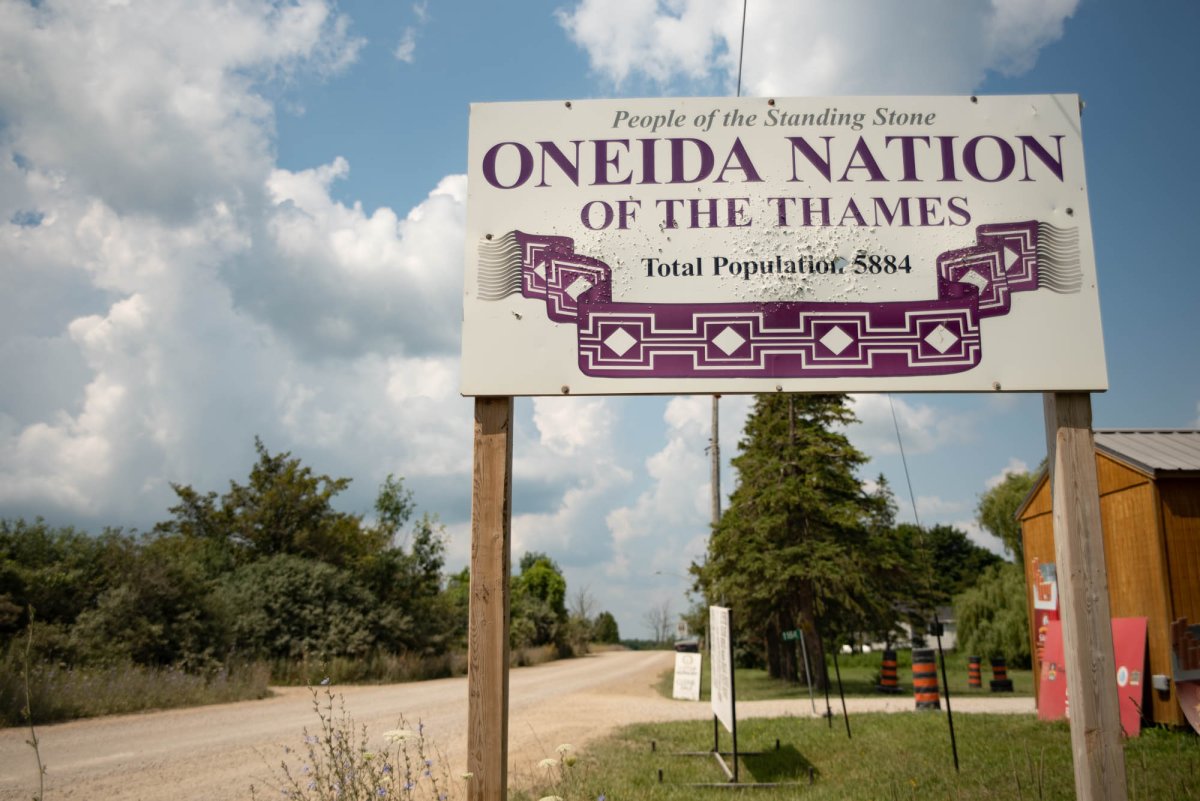After what Oneida Chief Jessica Hill described as “thousands of people” trying to come purchase supplies, the reserve has decided to close its doors to protect residents from COVID-19.

Hill said they were initially planning to close the reserve at midnight Sunday to those who don’t live there but have had to take immediate action after the influx of people.
“There are so many people that it is going to be unsafe for people to come because we won’t be able to ensure social distancing,” Hill said.
“The people coming here are not practising social distancing; they are standing in crowds panicking.”
Chief Hill said the line to get into the reserve is so long that people won’t be able to get onto the shops by midnight anyways.
She said the reserve will now be closed to all people who don’t live in the community except Oneida members who need to come and grocery shop or who need to take care of parents and grandparents.
The reserve has already started closing down several of its six entrances, but Hill added some would remain open for essential services to pass through as needed.
Although, as of Sunday, there are 31 cases of COVID-19 in the Middlesex London region, Oneida has yet to have any.
- Canadian man dies during Texas Ironman event. His widow wants answers as to why
- ‘Sciatica was gone’: hospital performs robot-assisted spinal surgery in Canadian first
- Canadians more likely to eat food past best-before date. What are the risks?
- Treatment from female doctors leads to lower death rates, study finds
The decision to close comes several days after a number of First Nations in northern Ontario decided to close their communities.
Questions about COVID-19? Here are some things you need to know:
Health officials caution against all international travel. Returning travellers are legally obligated to self-isolate for 14 days, beginning March 26, in case they develop symptoms and to prevent spreading the virus to others. Some provinces and territories have also implemented additional recommendations or enforcement measures to ensure those returning to the area self-isolate.
Symptoms can include fever, cough and difficulty breathing — very similar to a cold or flu. Some people can develop a more severe illness. People most at risk of this include older adults and people with severe chronic medical conditions like heart, lung or kidney disease. If you develop symptoms, contact public health authorities.
To prevent the virus from spreading, experts recommend frequent handwashing and coughing into your sleeve. They also recommend minimizing contact with others, staying home as much as possible and maintaining a distance of two metres from other people if you go out.
For full COVID-19 coverage from Global News, click here.









Comments